Traditional ceremonies still matter deeply to the generation that values convention and ritual.

Baby boomers approach death planning with fundamentally different priorities than millennials and Gen Z, reflecting broader generational divides in values and perspectives. What once seemed like universal funeral traditions are rapidly evolving as younger generations reject formality and embrace personalization. The contrast reveals much about how each generation views legacy, memory, and community.
These differences extend beyond simple preference into deeply held beliefs about respect, tradition, and the proper way to honor the dead. Understanding these generational gaps helps families navigate difficult conversations and funeral planning with less conflict.
1. Boomers overwhelmingly prefer traditional burial over cremation despite rising costs.
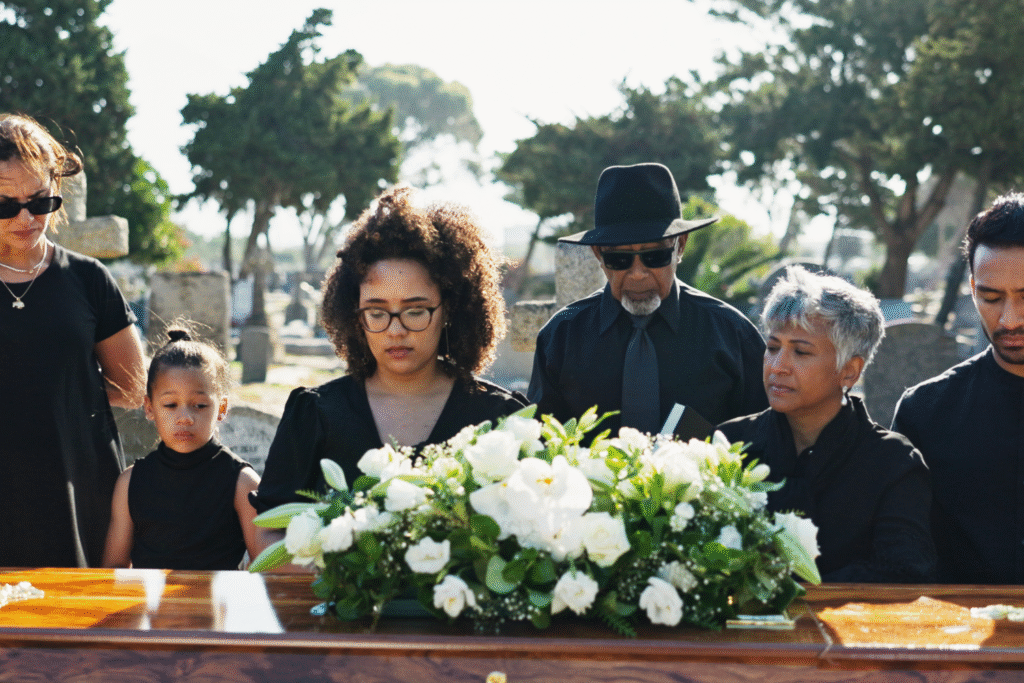
Purchasing cemetery plots and choosing caskets remains the default option for most baby boomers, who view burial as the respectful and proper way to handle remains. This generation grew up attending graveside services and visiting family plots on holidays, creating deep associations between burial and honoring the deceased. The permanence of a marked grave provides comfort, offering descendants a specific place to visit and remember for generations to come.
Younger generations increasingly choose cremation to save money and avoid taking up land, viewing burial as wasteful and environmentally problematic. Boomers dismiss these concerns, believing that cost shouldn’t dictate something as important as final arrangements. They’ve often already purchased family plots and intend to be buried near parents, spouses, or siblings. The idea of being scattered as ashes feels too informal and impermanent. Many boomers have explicitly instructed their children against cremation, sometimes causing family tension when cost-conscious heirs question spending thousands on burial expenses.
2. Formal religious services feel essential rather than optional to most boomers.
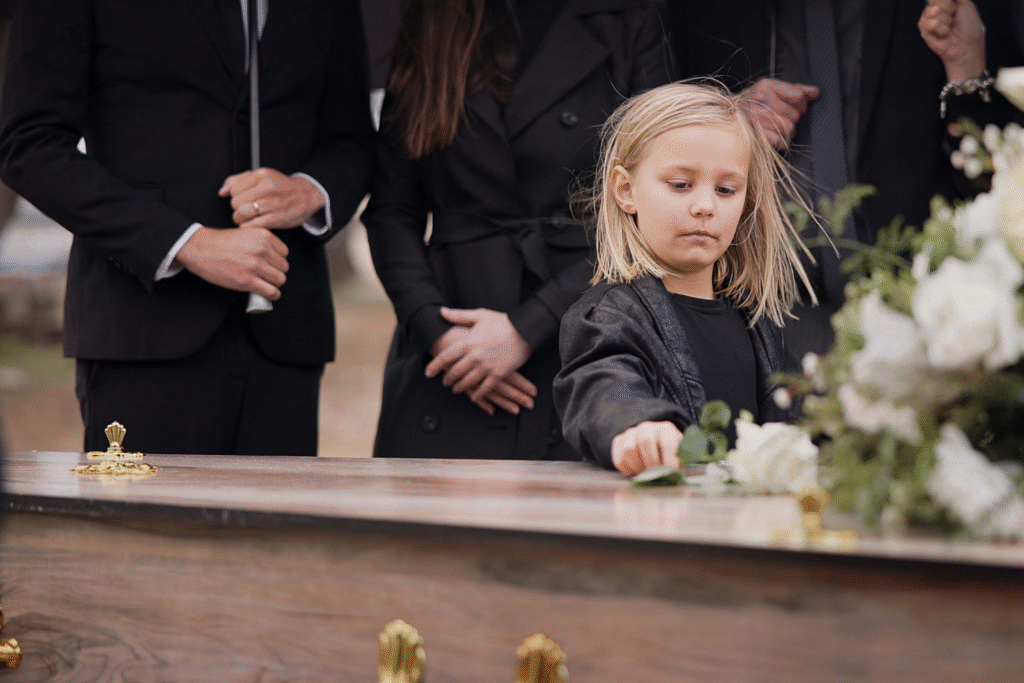
Church funerals with clergy officiating represent the standard boomer expectation, regardless of how frequently they attended services during life. This generation associates proper funerals with religious frameworks, hymns, prayers, and Biblical readings that provide structure and meaning to grief. Even relatively secular boomers often want traditional religious elements included, viewing them as culturally appropriate rather than strictly spiritual requirements.
Millennials and Gen Z increasingly opt for secular celebrations of life or non-denominational services that focus on personal stories rather than religious doctrine. They’re comfortable with friends officiating or skipping formal services entirely in favor of casual gatherings. Boomers find this approach disrespectful and inadequate, believing that death deserves solemn religious acknowledgment regardless of personal beliefs. The generational clash often surfaces when adult children plan services for boomer parents, trying to balance their own preferences with what they know their parents expected. Some boomers pre-plan their funerals specifically to prevent their children from choosing informal alternatives.
3. Extended viewing hours and open caskets remain important traditions for boomers.
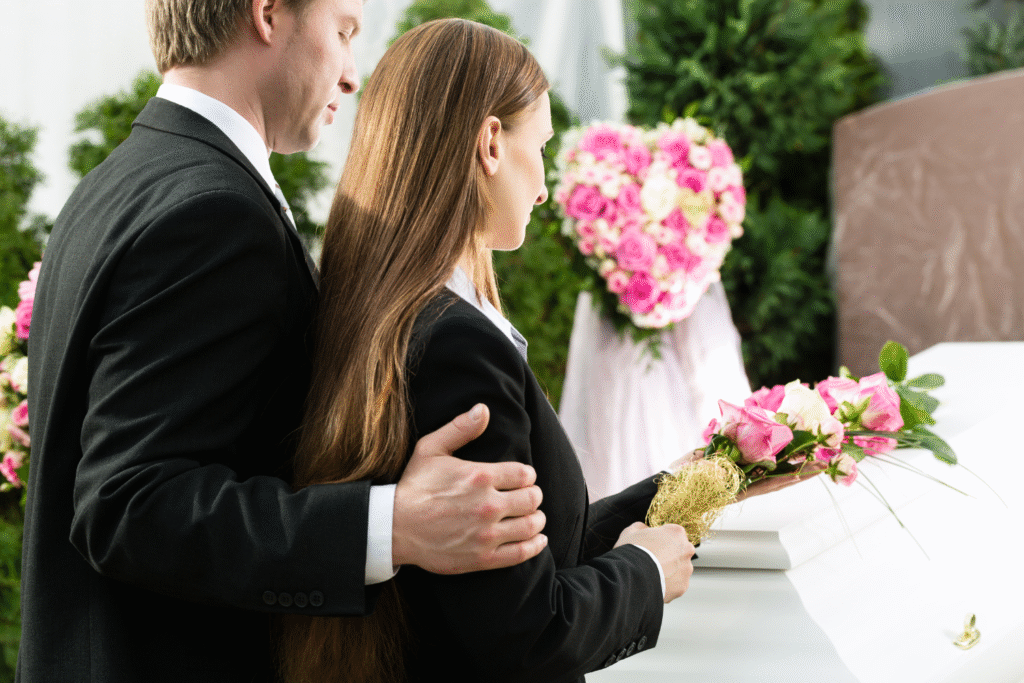
Multi-day wakes with specific visiting hours allow community members to pay respects in person, a ritual boomers consider crucial for proper mourning. They expect the deceased to be professionally embalmed and presented in an open casket, giving mourners the opportunity to say goodbye to a recognizable body. This generation views seeing the deceased as an important part of accepting death’s reality and finding closure.
Younger generations often find open casket viewings disturbing rather than comforting, preferring closed caskets or memorial services without bodies present. They’re more likely to limit viewing to immediate family or skip it entirely, focusing instead on photo displays and video tributes. Boomers interpret these choices as avoiding death rather than facing it appropriately. They believe that seeing the body helps mourners accept the loss and provides one final moment of connection. The meticulous preparation of remains for viewing represents respect and care that shouldn’t be skipped just because it feels uncomfortable.
4. Formal attire and dress codes matter significantly to boomer funeral culture.
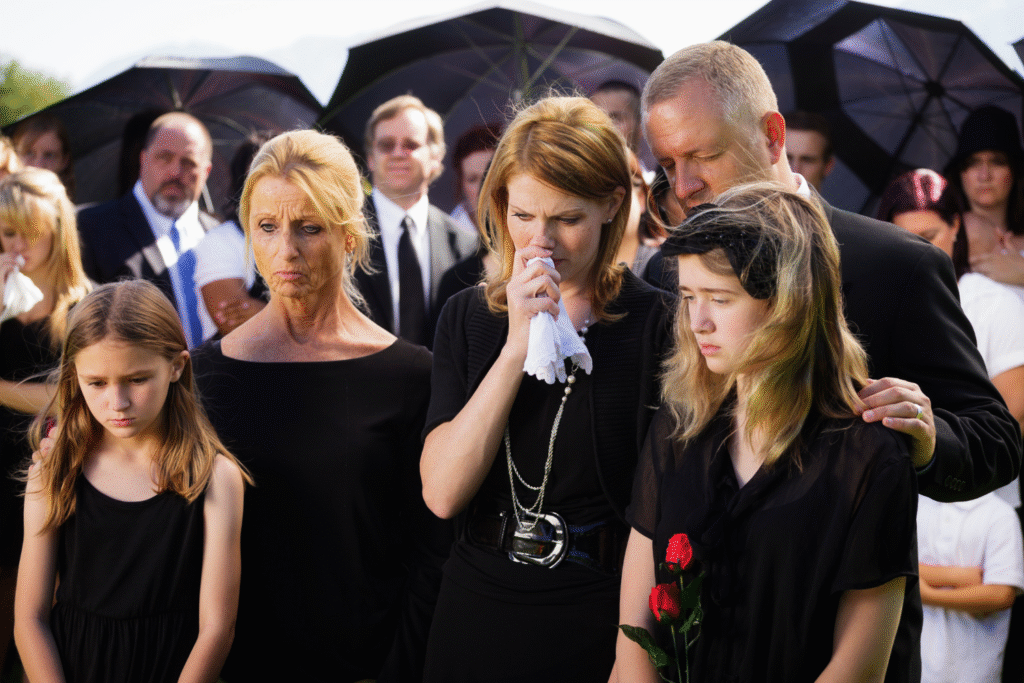
Boomers expect mourners to wear dark, conservative clothing to funerals, viewing appropriate attire as a sign of respect for the deceased and their family. Men should wear suits and ties, women should wear modest dresses or suits, and everyone should avoid bright colors or casual clothing. This generation remembers when funeral attendance required dressing up, and they believe maintaining these standards shows proper reverence.
Younger generations increasingly embrace casual funeral attire or even celebrate-life dress codes requesting bright colors or clothing reflecting the deceased’s personality. Boomers often feel scandalized seeing jeans, sneakers, or colorful outfits at services, interpreting casual dress as disrespectful indifference. They’ll comment critically about inappropriate attire at funerals, viewing it as evidence of declining standards. Some boomers specifically request formal dress codes in their funeral plans to prevent casual celebrations. The generational divide over clothing reflects broader disagreements about whether funerals should be solemn, formal occasions or personalized celebrations.
5. Elaborate floral arrangements and traditional sympathy flowers remain standard expectations.
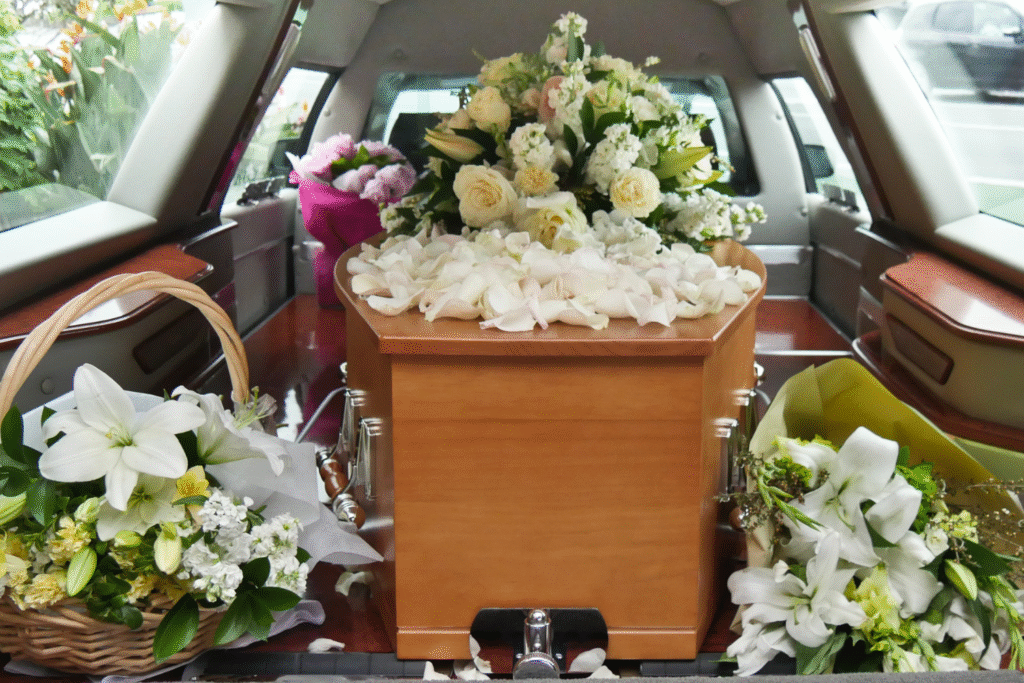
Boomers anticipate substantial floral displays at funerals, with specific flowers carrying traditional meanings that properly honor the deceased. Large standing sprays, casket covers, and numerous arrangements from various mourners create the visual atmosphere they associate with meaningful services. Flowers represent both beauty and the ephemeral nature of life, making them symbolically appropriate for mourning.
Millennials and Gen Z often request donations to charities instead of flowers, viewing elaborate arrangements as wasteful spending on items that die within days. They prefer living memorial trees or donations that create lasting impact rather than temporary displays. Boomers find this practical approach cold and inappropriate, believing that funerals deserve beautiful, traditional touches regardless of practicality. The sight and scent of funeral flowers trigger appropriate emotions and create proper ambiance. Some families compromise by requesting both flowers and donations, but boomers remain disappointed when services feature minimal floral presence.
6. Published newspaper obituaries feel necessary for proper notification and tribute.
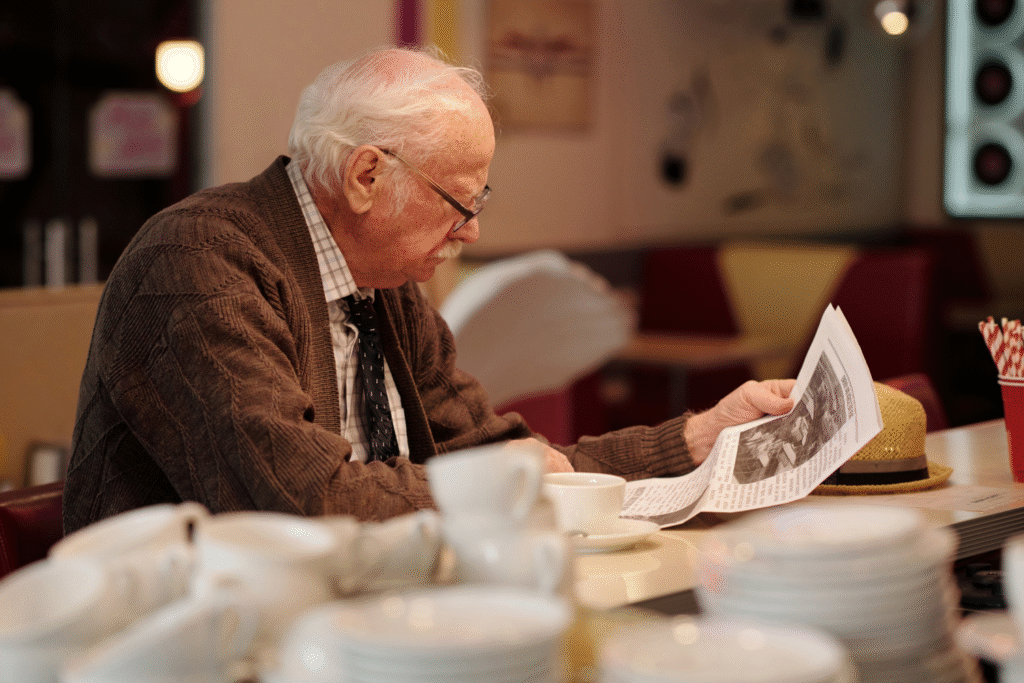
Boomers expect detailed obituaries in local newspapers, viewing published death notices as the respectful way to inform communities and honor lives. These formal announcements follow specific formats, listing survivors, accomplishments, and service details for anyone who might want to attend. The permanence of print publication feels more substantial and official than digital alternatives.
Younger generations announce deaths through social media and email, finding newspaper obituaries expensive and unnecessary when faster, free options exist. They create online memorial pages, Facebook posts, and group texts that reach far more people than local papers. Boomers dismiss these methods as too casual and impermanent, believing that significant life events deserve formal documentation in traditional media. They often insist on newspaper obituaries even when children question the cost. The generational split reflects different relationships with media and different definitions of what constitutes proper public acknowledgment.
7. Graveside military honors remain deeply meaningful for veteran boomers and their families.
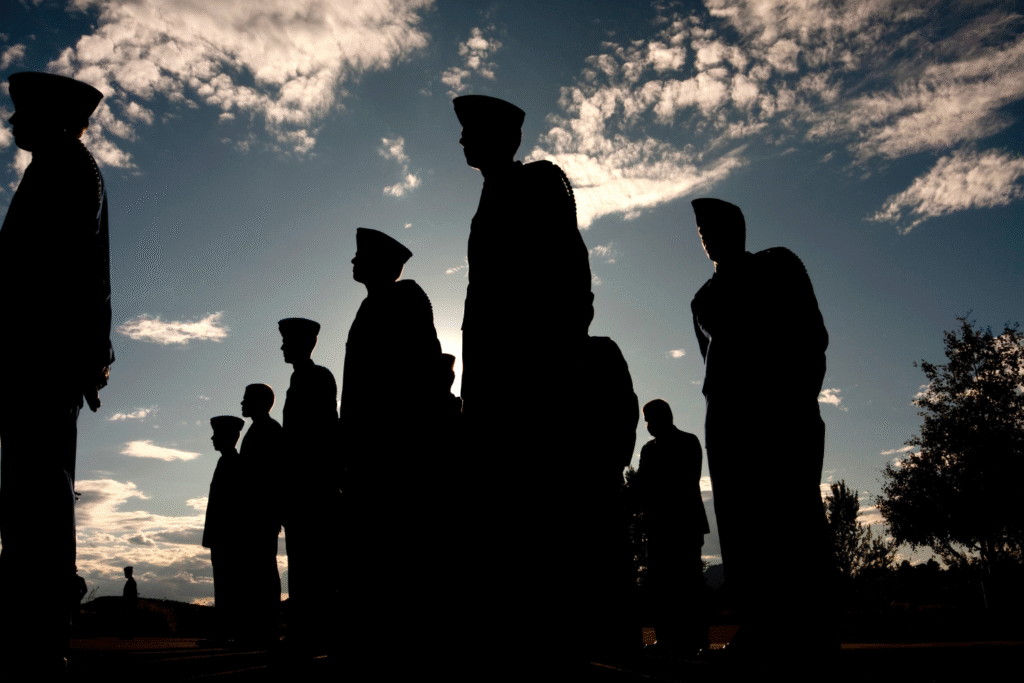
Boomer veterans and their families place enormous importance on military funeral honors, including flag presentations, rifle salutes, and taps played by buglers. These ceremonial elements represent earned recognition for service and sacrifice, providing profound meaning that transcends individual preference. The formality and precision of military honors align perfectly with boomer values around proper tribute.
Younger veterans sometimes decline full military honors, viewing them as unnecessary formality or feeling uncomfortable with attention. They might request simplified services or private family gatherings instead of public military ceremonies. Boomer veterans find this attitude baffling, believing that military service deserves public recognition and that honors represent the nation’s gratitude. Many pre-arrange their military funerals to ensure children don’t skip these important elements. The flag-folding ceremony and presentation to surviving family members carries particular emotional weight that boomers believe should never be casually dismissed.
8. Expensive caskets and burial vaults represent appropriate investment in final arrangements.
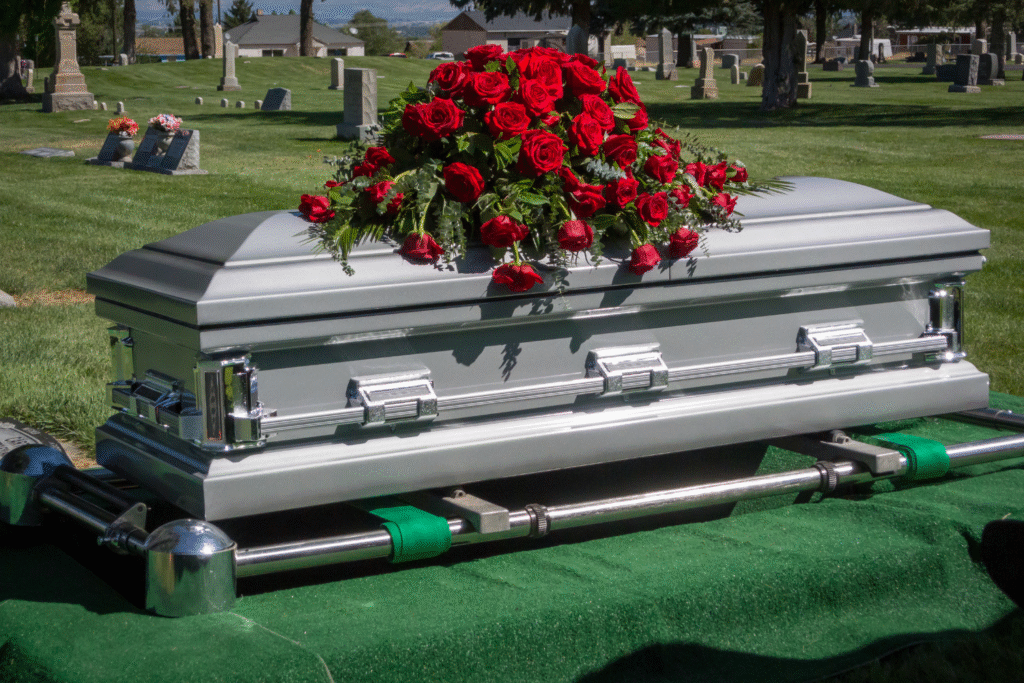
Boomers willingly spend significant money on high-quality caskets, viewing them as final gifts to the deceased that reflect love and respect. Protective sealing caskets and concrete burial vaults that preserve remains feel like important purchases rather than unnecessary expenses. This generation believes that cutting corners on funeral products dishonors the dead and reflects poorly on surviving family members.
Younger generations increasingly choose minimal caskets or alternative containers, prioritizing cost savings and environmental concerns over aesthetics or preservation. They question why anyone needs an expensive casket that will be buried underground, viewing funeral industry pricing as exploitative. Boomers interpret these attitudes as disrespectful cheapness rather than practical thinking. They believe that price reflects quality and care, making expensive options the only appropriate choice. The guilt younger generations feel about choosing cheaper alternatives often comes directly from boomer expectations about what constitutes proper treatment of the deceased.
